It looks like you're using an Ad Blocker.
Please white-list or disable AboveTopSecret.com in your ad-blocking tool.
Thank you.
Some features of ATS will be disabled while you continue to use an ad-blocker.
13
share:
Now what in the world ??..you may ask and why am I making this thread..well a quick diversion from another thread in the Movies forum Gods Of Egypt
www.abovetopsecret.com...
I was inspired to create awareness of the richness of the Greek mythology made even richer by adding people who were for all intent at the opposite ends of the ethnic and cultural spectrum ,note I said ethnic and cultural as opposed to " race " I am not a race man, and the Greeks themselves were notoriously benders of anything we may call Race today,but they did take note of somatic norms and in their approach to differences character and culture first other factors took a back seat,for they divide the world into Greeks and Barbarians ,but barbarians in their term did not necessarily meant uncivilized, Egyptians, Indians and various Ethiopians were certainly civilized while other were not.among the civilized were as they called them the The Egyptides and the Ethiopians immediately upriver from them so lets start with their treatment of them in their myths.
Aeygyptus .
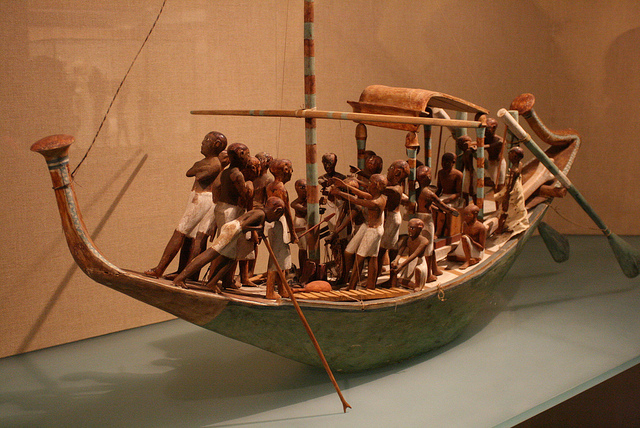
Synopsis
The fifty daughters of Danaus, collectively known as the Danaides (who make up the Chorus of the play), are fleeing with their father in an attempt to escape a forced marriage to their Egyptian cousins, the fifty sons of the usurping King Aegyptus, Danaus’ twin brother
When they reach Argos, Danaus and his daughters ask the kind but timid King Pelasgus for his protection. At first, he refuses, pending the decision of the Argive people on the matter, but the people of Argos agree to protect the fugitives, to great rejoicing among the Danaides.
Almost immediately, however, the fleet of Egyptian suitors is seen approaching, and a herald blusters and threatens the Danaides and attempts to force them to return to their cousins for marriage, finally resorting to attempts to physically drag them away. King Pelasgus intervenes and threatens the herald, interposing with an armed force to drive off the Egyptians and thereby save the suppliants. He entreats the Danaides to remain within the safety of the walls of the city.
www.ancient-literature.com...
What the above is saying is that the people of the Argive or Greeks received an influx of Kemetian refugees that settled among them ,pursued by some rival claim to the throne.
KING Of the Argos
271] Now that you have my testimony, declare your lineage and speak further—yet our people do not take pleasure in long discourse.
Enter the King of Argos with men-at-arms.
CHORUS
[274] Our tale is brief and clear. Argives we claim to be by birth, offspring of a cow blest in its children. And the truth of this I shall confirm in full.
KING Of the Argos
[277] Foreign maidens, your tale is beyond my belief—how your race can be from Argos. For you are more similar to the women of Libya and in no way similar to those native to our land. The Nile, too, might foster such a stock, and like yours is the Cyprian impress stamped upon female images by male craftsmen. And of such aspect, I have heard, are nomad women, who ride on camels for steeds, having padded saddles, and dwell in a land neighboring the Aethiopians. And had you been armed with the bow, certainly I would have guessed you to be the unwed, flesh-devouring Amazons. But inform me, and I will better comprehend how it is that you trace your race and lineage from Argos.
www.theoi.com...
After some back and forth the Greeks decide to accept and defend the refugees.
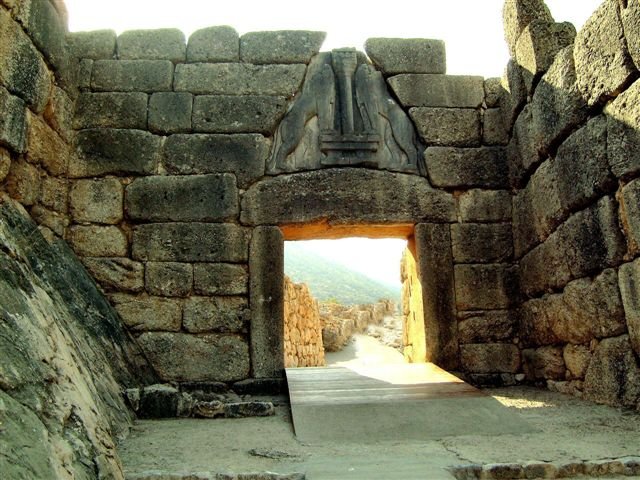
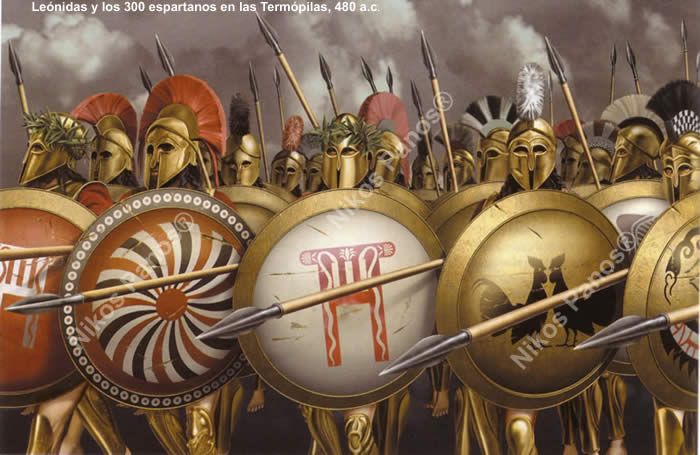
DANAUS
[710] I commend these sensible prayers, dear children; but do not be troubled yourselves when you hear the unexpected and startling tidings your father has to tell. From my post of look-out here on the sanctuary of suppliants I see that ship; for it is well-marked and does not escape me: the trimming of its sail, its side-guards, and the prow that with its eyes scans its onward course, obeying—all too well for those to whom it is unfriendly—the guiding rudder at the stern. The men on board are plainly seen, their black limbs showing from their white attire.
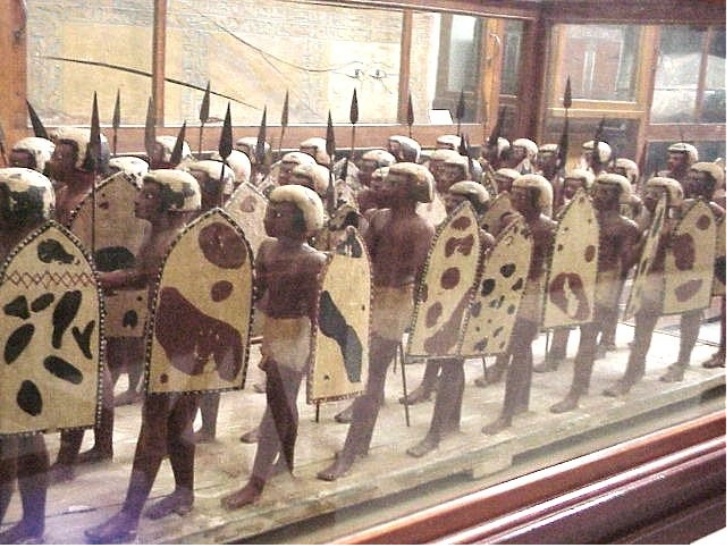
Note pics are just for fun and may not reflect the exact period.
To Be Con't. stay tuned.
www.abovetopsecret.com...
I was inspired to create awareness of the richness of the Greek mythology made even richer by adding people who were for all intent at the opposite ends of the ethnic and cultural spectrum ,note I said ethnic and cultural as opposed to " race " I am not a race man, and the Greeks themselves were notoriously benders of anything we may call Race today,but they did take note of somatic norms and in their approach to differences character and culture first other factors took a back seat,for they divide the world into Greeks and Barbarians ,but barbarians in their term did not necessarily meant uncivilized, Egyptians, Indians and various Ethiopians were certainly civilized while other were not.among the civilized were as they called them the The Egyptides and the Ethiopians immediately upriver from them so lets start with their treatment of them in their myths.
Aeygyptus .

Synopsis
The fifty daughters of Danaus, collectively known as the Danaides (who make up the Chorus of the play), are fleeing with their father in an attempt to escape a forced marriage to their Egyptian cousins, the fifty sons of the usurping King Aegyptus, Danaus’ twin brother
When they reach Argos, Danaus and his daughters ask the kind but timid King Pelasgus for his protection. At first, he refuses, pending the decision of the Argive people on the matter, but the people of Argos agree to protect the fugitives, to great rejoicing among the Danaides.
Almost immediately, however, the fleet of Egyptian suitors is seen approaching, and a herald blusters and threatens the Danaides and attempts to force them to return to their cousins for marriage, finally resorting to attempts to physically drag them away. King Pelasgus intervenes and threatens the herald, interposing with an armed force to drive off the Egyptians and thereby save the suppliants. He entreats the Danaides to remain within the safety of the walls of the city.
www.ancient-literature.com...
What the above is saying is that the people of the Argive or Greeks received an influx of Kemetian refugees that settled among them ,pursued by some rival claim to the throne.
KING Of the Argos
271] Now that you have my testimony, declare your lineage and speak further—yet our people do not take pleasure in long discourse.
Enter the King of Argos with men-at-arms.
CHORUS
[274] Our tale is brief and clear. Argives we claim to be by birth, offspring of a cow blest in its children. And the truth of this I shall confirm in full.
KING Of the Argos
[277] Foreign maidens, your tale is beyond my belief—how your race can be from Argos. For you are more similar to the women of Libya and in no way similar to those native to our land. The Nile, too, might foster such a stock, and like yours is the Cyprian impress stamped upon female images by male craftsmen. And of such aspect, I have heard, are nomad women, who ride on camels for steeds, having padded saddles, and dwell in a land neighboring the Aethiopians. And had you been armed with the bow, certainly I would have guessed you to be the unwed, flesh-devouring Amazons. But inform me, and I will better comprehend how it is that you trace your race and lineage from Argos.
www.theoi.com...
After some back and forth the Greeks decide to accept and defend the refugees.


DANAUS
[710] I commend these sensible prayers, dear children; but do not be troubled yourselves when you hear the unexpected and startling tidings your father has to tell. From my post of look-out here on the sanctuary of suppliants I see that ship; for it is well-marked and does not escape me: the trimming of its sail, its side-guards, and the prow that with its eyes scans its onward course, obeying—all too well for those to whom it is unfriendly—the guiding rudder at the stern. The men on board are plainly seen, their black limbs showing from their white attire.

Note pics are just for fun and may not reflect the exact period.
To Be Con't. stay tuned.
edit on 20-11-2015 by Spider879 because: (no reason given)
But how "black" were the Egyptians of those days?
Being African and being "black" are not the same thing.
Being African and being "black" are not the same thing.
originally posted by: DISRAELI
But how "black" were the Egyptians of those days?
Being African and being "black" are not the same thing.
I kind of got that that isn't the point, it's about being sufficiently different, in a physically recognisable sense, to be noted as different. So, OP correct me if I am on the wrong end of the stick, the Greeks saw them not as Greek but also not as barbarians. Given the Greek world view this is notable and I think that this is what Spider is looking to explore. Maybe...I'm sure he'll come and explain for himself in due course...just butting in with my penny while we wait.
originally posted by: Astyanax
a reply to: Anaana
No, he means black. It's Spider's hobby, finding black people in history.
Yes *sigh* I know he means "black , the title is clear on that but reading the body of text and rather than leaping to preformed conclusions, I read the links. Blackness of skin is highly subjective and relative, both culturally and individually, obviously. It is also interesting in how the novel can be prized but as soon as it is common, despised.
There's a scope there, the OP might see it or not, that's what is to be discussed...one might suppose.
originally posted by: DISRAELI
But how "black" were the Egyptians of those days?
Being African and being "black" are not the same thing.
LOL that literally depends on the country you're from. For example, "black" in some States in America meant "having 1 drop of African blood in your veins" under the infamous "one drop rule". But other States only designated you "black" if you had a "black" grandparent or great grandparent.
South Africa only designates people "Black" if they are 100% African. The mixed raced people there are designated as"Colored", like the famous "Cape Coloured" people. A "Colored" designation gave more rights than the "Black" designation during the Apartheid years.
And Brazil is the complete opposite of America's "one drop rule". In Brazil, you're only designated as "Black" if you're 100% African. But any drops of white or Native American blood made you "better", and thus, gave you more rights & protections. Because of this, most Brazilians don't consider themselves "Black", even though 50% of Brazilians have 50% or more African blood. All of them would be considered "Black" if they lived in America, though. (I believe each country in South America, Central America, and the Caribbean have different classifications, too).
I was semi-recently told that in some parts of Europe, they believe what you just said. That being "African" and being "Black" were totally different. They told me that being "black" was reserved for the Africans south of the Sahara, particularly the darkest skinned people. Obviously other countries would still consider all of them as "black", just as some countries consider Indians (from India), Aboriginals, and other dark brown people as being "black".
Edit to Add: It's actually a shame that we're having to ask these questions. There was no stigma to being dark skinned in those days, so it literally didn't matter. And as for Egypt, here's a google image search for Queen Tiye, the Nubian wife of Pharaoh Amenhotep III, mother of Pharaoh Akhenaten, and grandmother of the famous "King Tut".
www.google.com...
I'd even ask you to look up the other pharaohs and even the other people in the hieroglyphics. Nearly all of the people are my complexion or darker. And you'll probably notice that Queen Tiye has the exact same dark skin color as the other Nubians, who are usually depicted as jet black in the hieroglyphics. The Egyptian/KMT pharaohs had 2 snakes on their headdress when they also ruled Nubia, and 1 snake when they only rules KMT/"Ancient Egypt". So is all of this a matter of semantics or complexion?
edit on 20-11-2015 by enlightenedservant because: added even more
a reply to: enlightenedservant
I agree that in the ancient world the difference between black and white had less significance, partly because it had no connection whatever with the difference between "slave" and "free", which is an association built up in more modern times.
At the beginning of Song of Solomon, the dark-skinned girl is marked out and therefore despised as a peasant working in the fields, not as originating from a different race.
But this thread and its title are trying to apply modern categories to the situation of the ancient world.
In the modern world, "black" often equates with "having negroid origins"; isn't that what it means for people who identify themselves as black, at least in America?
Now to the extent that "black" = "negroid", the assumption that "black" means south of the Sahara is valid.
Even more so in the ancient world, where the northern coast of Africa is supposed to have been dominated by the "Hamitic" peoples (like the dominant ethnos of modern Ethiopia). The Egyptians would make a distinction between themselves and the Nubians further to the south (so the appearance of the Nubians has no bearing on the issue).
And to the extent that "black" = "negroid", the category doesn't include even darker-skinned peoples who are not negroid.
So the place that the ancient Egyptians occupied in the thought-world of the ancient Greeks has nothing much to do with being "black" in the sense of modern political controversy, which is why I queried the title.
I agree that in the ancient world the difference between black and white had less significance, partly because it had no connection whatever with the difference between "slave" and "free", which is an association built up in more modern times.
At the beginning of Song of Solomon, the dark-skinned girl is marked out and therefore despised as a peasant working in the fields, not as originating from a different race.
But this thread and its title are trying to apply modern categories to the situation of the ancient world.
In the modern world, "black" often equates with "having negroid origins"; isn't that what it means for people who identify themselves as black, at least in America?
Now to the extent that "black" = "negroid", the assumption that "black" means south of the Sahara is valid.
Even more so in the ancient world, where the northern coast of Africa is supposed to have been dominated by the "Hamitic" peoples (like the dominant ethnos of modern Ethiopia). The Egyptians would make a distinction between themselves and the Nubians further to the south (so the appearance of the Nubians has no bearing on the issue).
And to the extent that "black" = "negroid", the category doesn't include even darker-skinned peoples who are not negroid.
So the place that the ancient Egyptians occupied in the thought-world of the ancient Greeks has nothing much to do with being "black" in the sense of modern political controversy, which is why I queried the title.
edit on 20-11-2015 by DISRAELI because: (no reason given)
Excellent thread....
I want to add that Barbarian didn't mean uncivilized in the begining....
Bar... Bar.... was what the Greeks heard when the Babylonians and Persians spoke....
So they sort of made fun of them and called them barbarians....
Later the term Barbarian then used for all foreigners,
and even later it became an epithet for the less civilized.
I want to add that Barbarian didn't mean uncivilized in the begining....
Bar... Bar.... was what the Greeks heard when the Babylonians and Persians spoke....
So they sort of made fun of them and called them barbarians....
Later the term Barbarian then used for all foreigners,
and even later it became an epithet for the less civilized.
Ok thanks for being patient guys,
Black is subjective as well as white and without going too far into the bio-anthropological nature of what a constitute a Black, it is now clear that the Kemetians aka Egyptians are closely related to the people nearest to them Saharans, Sudanese and Africans further east in the Ethiopian highlands all the way to the Great lakes,all these folks may or may not share similar features, some may be broad featured others maybe narrow featured and both tend to overlap in any of the adjoining areas, the Hamitic theory is long dead.
How the Greeks dealt with the issue of difference between groups of Blacks and this incidentally includes non Africans such as certain types of Indians and some areas of the Levant and Mesopotamia proper, broad featured woolly haired types were in no way a stranger in lands outside Africa much less the Sahara for even some non Africans had these features along with dark-skins.
Ethiopia aka the lands of the Blacks according to the Greeks covered Africa from upper Egypt to Sudan , south western Africa parts of Arabia and India, as a matter of fact India and Ethiopia were sometimes interchangeable for they had Black people but the main Ethiopia was none other than Kush, and in this area you also have the Blackest of men, all others are merely variants, put it this way very few western Blacks could fit in that box ,and many Africans tend to be brownish with various features and sometimes hair type.
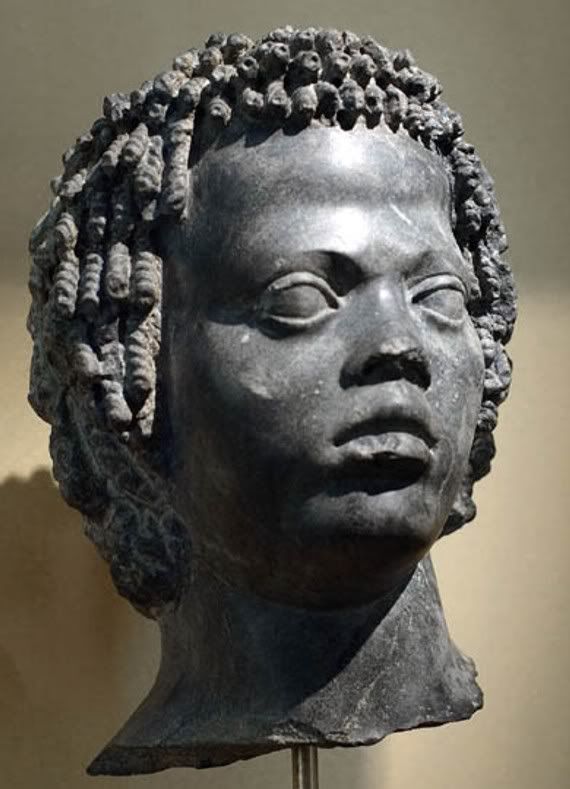
An Ethiopian perhaps a diplomat in the Levant :Brooklyn museum
Western type,
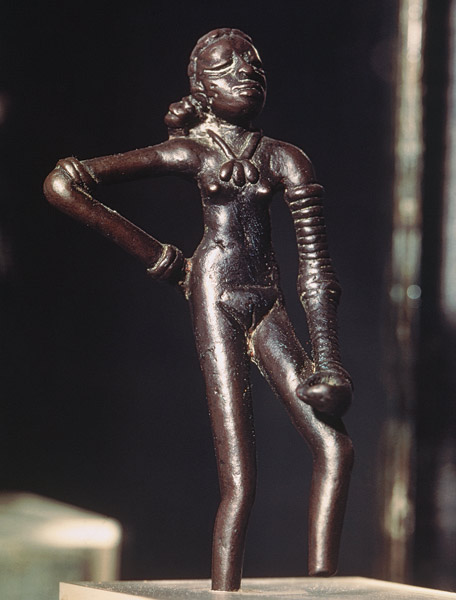
A Harappan dancing girl
no doubt she would represent what the Greeks called Eastern Ethiopian.
The Greek's view
The phrase Black is beautiful believe it or not was coined by the ancient Greeks, this was from the self absorbed Greeks whose vision of manly beauty was a Greek.
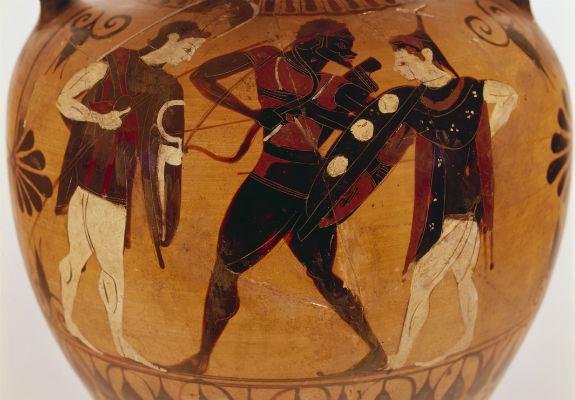
Which brings us to Memnon.
Google sourced but can be trusted in this case.
Black is subjective as well as white and without going too far into the bio-anthropological nature of what a constitute a Black, it is now clear that the Kemetians aka Egyptians are closely related to the people nearest to them Saharans, Sudanese and Africans further east in the Ethiopian highlands all the way to the Great lakes,all these folks may or may not share similar features, some may be broad featured others maybe narrow featured and both tend to overlap in any of the adjoining areas, the Hamitic theory is long dead.
How the Greeks dealt with the issue of difference between groups of Blacks and this incidentally includes non Africans such as certain types of Indians and some areas of the Levant and Mesopotamia proper, broad featured woolly haired types were in no way a stranger in lands outside Africa much less the Sahara for even some non Africans had these features along with dark-skins.
Ethiopia aka the lands of the Blacks according to the Greeks covered Africa from upper Egypt to Sudan , south western Africa parts of Arabia and India, as a matter of fact India and Ethiopia were sometimes interchangeable for they had Black people but the main Ethiopia was none other than Kush, and in this area you also have the Blackest of men, all others are merely variants, put it this way very few western Blacks could fit in that box ,and many Africans tend to be brownish with various features and sometimes hair type.

An Ethiopian perhaps a diplomat in the Levant :Brooklyn museum
Western type,

A Harappan dancing girl
no doubt she would represent what the Greeks called Eastern Ethiopian.
The Greek's view
Mention is made of Eastern and Western Ethiopians and it is probable that the Easterners were Asiatics and the Westerners Africans.” (History of Ethiopia, Vol. I., Preface, by Sir E. A. Wallis Budge.) In addition Budge notes that, “Homer and Herodotus call all the peoples of the Sudan, Egypt, Arabia, Palestine and Western Asia and India Ethiopians.” (Ibid., p. 2.) Herodotus wrote in his celebrated History that both the Western Ethiopians, who lived in Africa, and the Eastern Ethiopians who dwelled in India, were black in complexion, but that the Africans had curly hair, while the Indians were straight-haired. (The aboriginal black inhabitants of India are generally referred to as the Dravidians, of whom more will be said as we proceed.) Another classical historian who wrote about the Ethiopians was Strabo, from whom we quote the following: “I assert that the ancient Greeks, in the same way as they classed all the northern nations with which they were familiar as Scythians, etc., so, I affirm, they designated as Ethiopia the whole of the southern countries toward the ocean.” Strabo adds that “if the moderns have confined the appellation Ethiopians to those only who dwell near Egypt, this must not be allowed to interfere with the meaning of the ancients.” Ephorus says that: “The Ethiopians were considered as occupying all the south coasts of both Asia and Africa,” and adds that “this is an ancient opinion of the of the Greeks.” Then we have the view of Stephanus of Byzantium, that:
tseday.wordpress.com...
The phrase Black is beautiful believe it or not was coined by the ancient Greeks, this was from the self absorbed Greeks whose vision of manly beauty was a Greek.
Now these Ethiopians to whom Cambyses was sending are said to be the tallest and the most beautiful of all men; and besides other customs which they are reported to have different from other men, there is especially this, it is said, with regard to their regal power,--whomsoever of the men of their nation they judge to be the tallest and to have strength in proportion to his stature, this man they appoint to reign over them.
www.sacred-texts.com...

Which brings us to Memnon.
Memnon was an Ethiopian king and son of Tithonus and Eos. As a warrior he was considered to be almost Achilles' equal in skill. During the Trojan War, he brought an army to Troy's defense and had killed Antilochus during a fierce battle . The death of Memnon echoes that of Hector, another defender of Troy whom Achilles also killed out of revenge for a fallen comrade, Patroclus. After Memnon's death, Zeus was moved by Eos' tears and granted him immortality.
Memnon journeying from the western Ocean with his army of Ethiopians, arrives at Troy in the immediate aftermath of an argument between Polydamas, Helen, and Priam that centres on whether or not the Aethiopian King will show up at all. Memnon's army is described as being too big to be counted and his arrival starts a huge banquet in his honour. As per usual the two leaders (Memnon and, in this case, Priam) end the dinner by exchanging glorious war stories, and Memnon's tales lead Priam to declare that the Aethiopian King will be Troy's saviour. Despite this, Memnon is very humble and warns that his strength will, he hopes, be seen in battle, although he believes it is unwise to boast at dinner. Before the next day's battle, so great is the divine love towards Memnon that Zeus makes all the other Olympians promise not to interfere in the fighting. In battle, Memnon kills Nestor's son, Antilochos, after Antilochos has killed Memnon's dear comrade, Aesop.
Memnon is seen as very similar to Achilles – both of them have strong sets of values that are looked upon favourably by the warrior culture of the time. When Memnon reaches the Greek ships, Nestor begs Achilles to fight him and avenge Antilochos, leading to the two men clashing while both wearing divine armour made by Hephaestus, making another parallel between the two warriors. Zeus favours both of them and makes each man tireless and huge so that the whole battlefield can watch them clash as demigods. Eventually, Achilles stabs Memnon through the heart, causing his entire army to flee in terror. In honour of Memnon, the Gods collect all the drops of blood that fall from him and use them to form a huge river that on every anniversary of his death will bear the stench of human flesh.[1] The Aethiopians that stayed close to Memnon in order to bury their leader are turned into birds (which we now call Memnons) and they stay by his tomb so as to remove dust that gathers on it
en.wikipedia.org...(mythology)
Google sourced but can be trusted in this case.
edit on 20-11-2015 by Spider879 because: Quote too long.
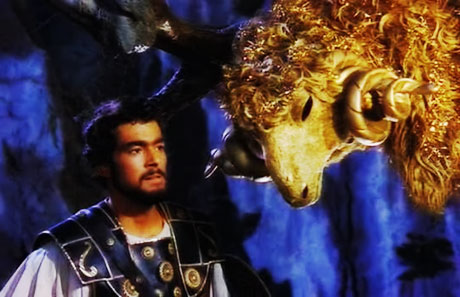
Jason and the golden fleece
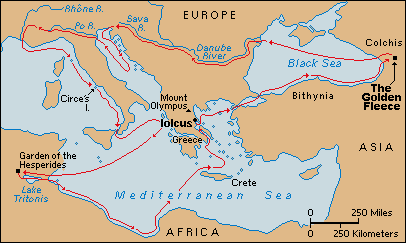
Some will remember Jason's quest to find the golden fleece, after a hard voyage with many twist and turns he reached a distant almost magical land called Kolkhis where the magical golden fleece lays hidden,
When Jason finally arrives in Colchis he asks King Aietes to return the golden fleece to him as it belonged to his ancestor. Reluctant, the king suggests yet another series of challenges to Jason. He must yoke fire-breathing bulls, plough and sow a field with dragons' teeth and then overcome the warriors who will rise from the furrows. Aietes is confident the tasks are impossible but unbeknownst to the king, his daughter Medea has taken a liking to Jason. She offers to assist Jason if he will marry her. He agrees. Medea is a powerful sorceress and Jason is successful.
www.pbs.org...
Now in this story nothing of Ethiopians or any kind of Black folks is mentioned,however a description of the Colchians from many different sources leave no doubt about a misplaced people that would more be at home on the Nile than on the Bosphorus .
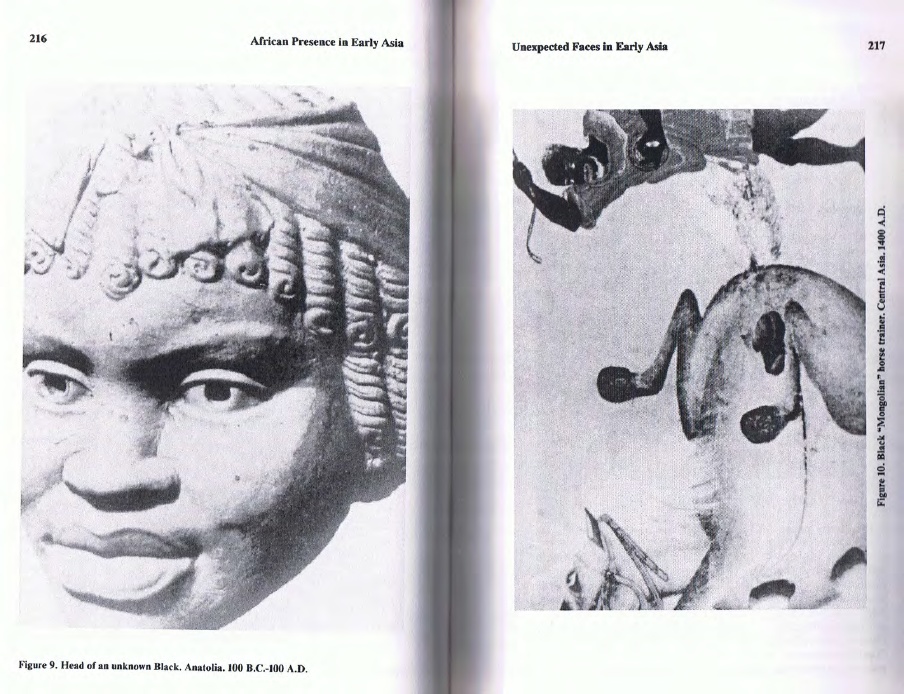
Left a Black Anatolian of the 1st century A.D a Colchian???
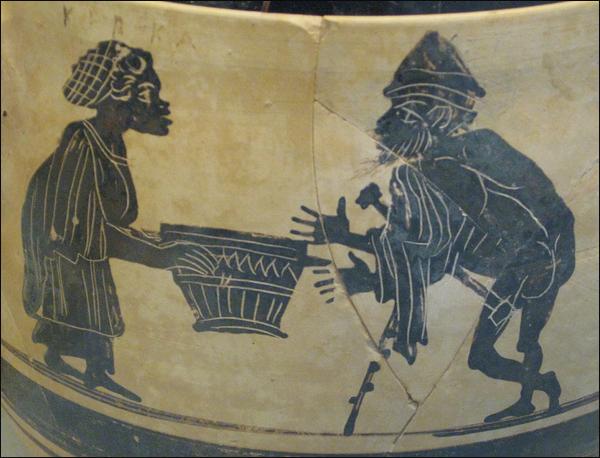
Kirke, Daughter of the Sun
Kirke (Circe) is the daughter of Helios (the Sun) and the Okeanid, Perseis, which would make her the grand-daughter of Okeanos (Ocean). Kirke was also the sister of king Aietes (Aeetes) of Kolchis (Colchis).
On her island ... in her palace ... Kirke waits for lost sailors to come wandering to her door as supplicants. Normally, a traveler is treated as a special guest but with Kirke, travelers are drugged and turned into animals to serve her as she sees fit.
Now why would Blacks be found in that area?? glad you asked Herodotus asked the same questions and got this curious answer.
For the people of Colchis are evidently Egyptian, and this I perceived for myself before I heard it from others. So when I had come to consider the matter I asked them both; and the Colchians had remembrance of the Egyptians more than the Egyptians of the Colchians; but the Egyptians said they believed that the Colchians were a portion of the army of Sesostris. That this was so I conjectured myself not only because they are dark-skinned and have curly hair (this of itself amounts to nothing, for there are other races which are so), but also still more because the Colchians, Egyptians, and Ethiopians alone of all the races of men have practised circumcision from the first. The Phenicians and the Syrians who dwell in Palestine confess themselves that they have learnt it from the Egyptians, and the Syrians about the river Thermodon and the river Parthenios, and the Macronians, who are their neighbours, say that they have learnt it lately from the Colchians. These are the only races of men who practise circumcision, and these evidently practise it in the same manner as the Egyptians. Of the Egyptians themselves however and the Ethiopians, I am not able to say which learnt from the other, for undoubtedly it is a most ancient custom; but that the other nations learnt it by intercourse with the Egyptians, this among others is to me a strong proof, namely that those of the Phenicians who have intercourse with Hellas cease to follow the example of the Egyptians in this matter, and do not circumcise their children."
(Herodotus, The Histories, Book 2: 104)
www.jstor.org...
There are later non Greek sources that made the same claims but will leave it out just deal with what the Greeks thought of the matter.
To be continued.
edit on 20-11-2015 by Spider879 because: (no reason given)
Andromeda
I long suspect the story of Andromeda to be of African origins long passed into Greek mythology, in Africa the theme is wide spread, stretching from the Niger to the Nile from ancient Wagadu (Bida the Black Snake)
www.abovetopsecret.com...
to Ethiopia , a beautiful virgin princess was chosen to be sacrificed to a serpent in order to save civilization, in all cases the princess is rescued by a handsome hero who slays the serpent and off they go living happily ever after, the Greek version took place either in Ethiopia or African occupied Levant.
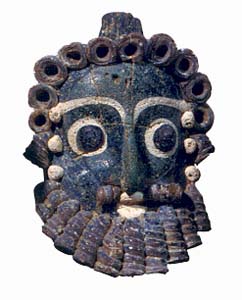
A Black Levantine
This mythical King of Ethiopia cropped up in a Roman history about Judeans
When I said African occupied Levant one must remember that Kemet held sway over that piece of ground on and off for centuries often with troops from Kush, or more likely the Madjay the Kush would hold political influence in the area until they were ousted by the Assyrians their soldiers and generals would remain influential in high civilian office or trade long after they retire from the military these would more than likely marry into the majority population adopting Levantine ways and imparting their own , scroll up above for circumcision shared with the Kolkhis Ethiopians and Egyptians.
there is a whole lot more, but for now this is it , hope you enjoyed it, and for all you screen writers , artist . film makers and story tellers there is an awful lot to add to your stories on subjects like these and not just the Black or other ethnic angle either.
I long suspect the story of Andromeda to be of African origins long passed into Greek mythology, in Africa the theme is wide spread, stretching from the Niger to the Nile from ancient Wagadu (Bida the Black Snake)
www.abovetopsecret.com...
to Ethiopia , a beautiful virgin princess was chosen to be sacrificed to a serpent in order to save civilization, in all cases the princess is rescued by a handsome hero who slays the serpent and off they go living happily ever after, the Greek version took place either in Ethiopia or African occupied Levant.
Perhaps the most enduring of all Greek myths is the story of Perseus and Andromeda, the original version of George and the dragon. Its heroine is beautiful Andromeda (Ἀνδρομέδα in Greek), the daughter of the weak King Cepheus of Ethiopia and the vain Queen Cassiopeia, whose boastfulness knew no bounds.
Andromeda’s misfortunes began one day when her mother claimed that she was more beautiful even than the Nereids, a particularly alluring group of sea nymphs. The affronted Nereids decided that Cassiopeia’s vanity had finally gone too far and they asked Poseidon, the sea god, to teach her a lesson. In retribution, Poseidon sent a terrible monster (some say also a flood) to ravage the coast of King Cepheus’s territory. Dismayed at the destruction, and with his subjects clamouring for action, the beleaguered Cepheus appealed to the Oracle of Ammon for a solution. He was told that he must sacrifice his
virgin daughter to appease the monster.
www.ianridpath.com...

A Black Levantine
This mythical King of Ethiopia cropped up in a Roman history about Judeans
Some hold, that Egypt swarming with people beyond measure, during the reign of Isis, to relieve it self, poured a great multitude into the regions adjoining, under the leading of Hierosolymus and Juda. Many take them, to be descended from the Ethiopians, and to have been, through their dread and hate of King Cepheus, forced to seek a new habitation.
orion.it.luc.edu...
When I said African occupied Levant one must remember that Kemet held sway over that piece of ground on and off for centuries often with troops from Kush, or more likely the Madjay the Kush would hold political influence in the area until they were ousted by the Assyrians their soldiers and generals would remain influential in high civilian office or trade long after they retire from the military these would more than likely marry into the majority population adopting Levantine ways and imparting their own , scroll up above for circumcision shared with the Kolkhis Ethiopians and Egyptians.
there is a whole lot more, but for now this is it , hope you enjoyed it, and for all you screen writers , artist . film makers and story tellers there is an awful lot to add to your stories on subjects like these and not just the Black or other ethnic angle either.
This thread is more powerful than a thousand safe spaces.
I am finding the info to be interesting.
I am finding the info to be interesting.
originally posted by: deadeyedick
This thread is more powerful than a thousand safe spaces.
I am finding the info to be interesting.
Thanks Deadeye glad you enjoyed it.
a reply to: DISRAELI
But the whole "negroid" classification came with the racial pseudo-sciences of the 1800s. The "Negroid", "Mongoloid", and "Caucasoid" terms & classifications started then, normally credited to biological anthropology and that Morton guy (forgot his name, can't stand him though). So yeah, those ethnics might agree with you in modern times, but not in the times of Kemet/Ancient Egypt.
Another quick example would be the Khoi/San people of Southern Africa. They have what's believed to be the oldest living Homo Sapien DNA, and this is what they look like.
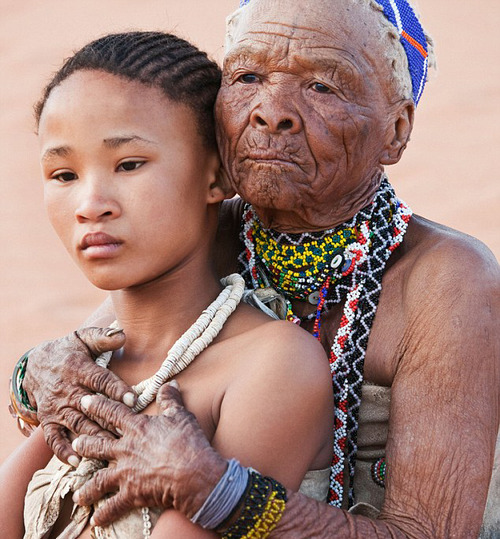

Would you consider them "Black", even though they've always been south of the Sahara & they're literally more "African" than any surviving ethnic group? I consider them "Black", but maybe that's because I'm using the American definition & I see no problem with being "Black". (Ironically, I'm "Black" in America but would be "Colored" in South Africa. meh)
As for the Hamitic people, don't forget the impact of the supposed "Curse of Ham". Dark skinned people all over the world have been claimed as "Hamitic" specifically to justify their enslavement from a religious perspective. For example, the Somalians are considered Hamitic, as their language is one of the Kush-itic/Cush-itic languages. Kush/Cush was supposedly one of Ham's sons, as was Canaan. (note: I'm just talking about from the religious perspective, not the genetic perspective. Also, I don't mean any negativity w/my words, I've been in a playful mood all day lol. But i think my words are seeming more serious than i intended.)
And Spider!!! Thanks for these threads. I absolutely love this stuff, though I don't spend nearly enough time researching it. So as not to distract anymore, I'll add something.
The Pharaoh Taharqa, a Nubian, was a pharaoh of both Kemet & Kush. He defeated the Assyrian leader Sennacherib while he was still just a general. He's also mentioned in the Bible as "Tirhakah", the king of Ethiopia (Kush) who defeated the Assyrian King Sennacherib (because this saved the Israelites who were warring with the Assyrians). I'm mentioning him because, according to wikipedia, the Greek historian Herodotus in the 450s BC mentioned a divine disaster weakening Sennacherib's army, which was then crushed by a military leader called "Sethos". Even though the names of the leaders don't match, the events match up with Taharqa's exploits. So the Greeks were certainly aware of the Kush/Nubian military campaign in the Levant, even if not by the same names.
But the whole "negroid" classification came with the racial pseudo-sciences of the 1800s. The "Negroid", "Mongoloid", and "Caucasoid" terms & classifications started then, normally credited to biological anthropology and that Morton guy (forgot his name, can't stand him though). So yeah, those ethnics might agree with you in modern times, but not in the times of Kemet/Ancient Egypt.
Another quick example would be the Khoi/San people of Southern Africa. They have what's believed to be the oldest living Homo Sapien DNA, and this is what they look like.


Would you consider them "Black", even though they've always been south of the Sahara & they're literally more "African" than any surviving ethnic group? I consider them "Black", but maybe that's because I'm using the American definition & I see no problem with being "Black". (Ironically, I'm "Black" in America but would be "Colored" in South Africa. meh)
As for the Hamitic people, don't forget the impact of the supposed "Curse of Ham". Dark skinned people all over the world have been claimed as "Hamitic" specifically to justify their enslavement from a religious perspective. For example, the Somalians are considered Hamitic, as their language is one of the Kush-itic/Cush-itic languages. Kush/Cush was supposedly one of Ham's sons, as was Canaan. (note: I'm just talking about from the religious perspective, not the genetic perspective. Also, I don't mean any negativity w/my words, I've been in a playful mood all day lol. But i think my words are seeming more serious than i intended.)
And Spider!!! Thanks for these threads. I absolutely love this stuff, though I don't spend nearly enough time researching it. So as not to distract anymore, I'll add something.
The Pharaoh Taharqa, a Nubian, was a pharaoh of both Kemet & Kush. He defeated the Assyrian leader Sennacherib while he was still just a general. He's also mentioned in the Bible as "Tirhakah", the king of Ethiopia (Kush) who defeated the Assyrian King Sennacherib (because this saved the Israelites who were warring with the Assyrians). I'm mentioning him because, according to wikipedia, the Greek historian Herodotus in the 450s BC mentioned a divine disaster weakening Sennacherib's army, which was then crushed by a military leader called "Sethos". Even though the names of the leaders don't match, the events match up with Taharqa's exploits. So the Greeks were certainly aware of the Kush/Nubian military campaign in the Levant, even if not by the same names.
originally posted by: enlightenedservant Herodotus in the 450s BC mentioned a divine disaster weakening Sennacherib's army, which was then crushed by a military leader called "Sethos". Even though the names of the leaders don't match, the events match up with Taharqa's exploits.
Herodotus called him that because he didn't know his name, there is no real name Sethos
There is a real name very well known to the Egyptians "Seth" and the Greek "os" ending simply means "man"
So Herodotus was simply saying "man of Seth" or "male attributes of Seth"
and Seth in Egyptian mythology was a usurper, So Herodotus was imo playing the racist card a little there
originally posted by: Marduk
originally posted by: enlightenedservant Herodotus in the 450s BC mentioned a divine disaster weakening Sennacherib's army, which was then crushed by a military leader called "Sethos". Even though the names of the leaders don't match, the events match up with Taharqa's exploits.
Herodotus called him that because he didn't know his name, there is no real name Sethos
There is a real name very well known to the Egyptians "Seth" and the Greek "os" ending simply means "man"
So Herodotus was simply saying "man of Seth" or "male attributes of Seth"
and Seth in Egyptian mythology was a usurper, So Herodotus was imo playing the racist card a little there
Could be but I think he may have mix up the name Shebitku and Shabaka, with Set??.. Shebitku was the king during the invasion of Palestine, Taharqa his Nephew was then a general, Herodotus would have been way off the mark for at this particular era Kush-ites were very very big on the God Amun, buuut at an earlier era 4 centuries back some were indeed into Set.
edit on 23-11-2015 by Spider879 because: (no reason given)
new topics
-
Joe Rogan conspiracy (maybe)
ATS Skunk Works: 1 hours ago -
Results of the use of the Oreshnik missile system in Dnepropetrovsk
World War Three: 3 hours ago -
Nigel Farage now the Most Favoured UK Politician
Regional Politics: 5 hours ago -
Little Johnny and Larry should team up
General Chit Chat: 11 hours ago -
Will Us use alien technology to fight in ww3?
World War Three: 11 hours ago
top topics
-
Results of the use of the Oreshnik missile system in Dnepropetrovsk
World War Three: 3 hours ago, 10 flags -
Little Johnny and Larry should team up
General Chit Chat: 11 hours ago, 9 flags -
Will Us use alien technology to fight in ww3?
World War Three: 11 hours ago, 2 flags -
Nigel Farage now the Most Favoured UK Politician
Regional Politics: 5 hours ago, 2 flags -
Joe Rogan conspiracy (maybe)
ATS Skunk Works: 1 hours ago, 2 flags
active topics
-
Well we know Putins ICBMs won't fail in their silos
World War Three • 197 • : Lazy88 -
Results of the use of the Oreshnik missile system in Dnepropetrovsk
World War Three • 88 • : Ravenwatcher -
Post A Funny (T&C Friendly) Pic Part IV: The LOL awakens!
General Chit Chat • 7815 • : baddmove -
President-Elect TRUMP Picks Former Florida A.G. PAM BONDI to be U.S. Attorney General.
2024 Elections • 53 • : Xtrozero -
Joe Rogan conspiracy (maybe)
ATS Skunk Works • 2 • : watchitburn -
Little Johnny and Larry should team up
General Chit Chat • 3 • : bluesman023 -
President-Elect DONALD TRUMP's 2nd-Term Administration Takes Shape.
Political Ideology • 238 • : WeMustCare -
Will Us use alien technology to fight in ww3?
World War Three • 11 • : BeyondKnowledge3 -
A Mysterious Orb filmed over NYC by local news
Aliens and UFOs • 25 • : ArMaP -
The Popular Vote does not matter
Political Issues • 14 • : texas thinker
13
